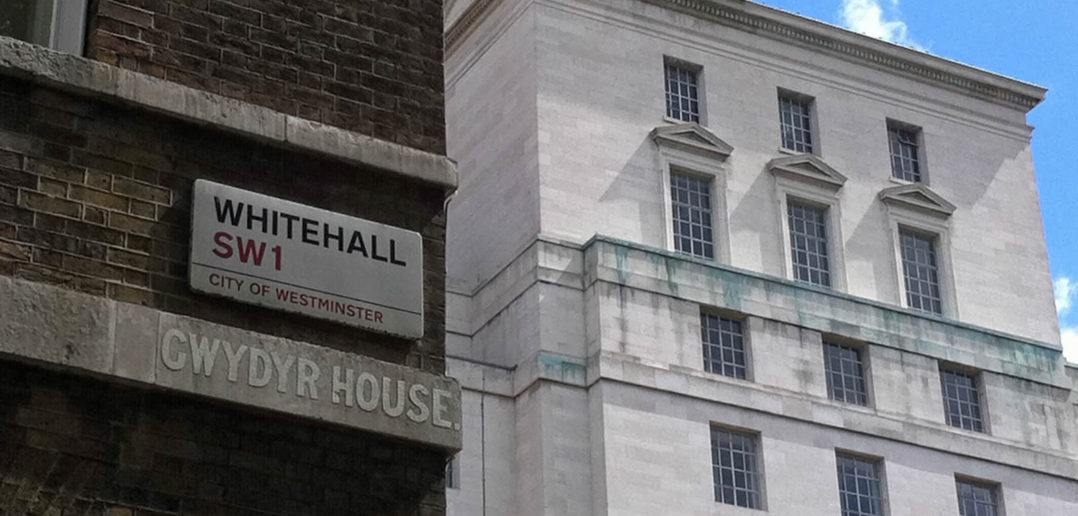The civil service of the United Kingdom seems to be in poor shape. It has been eroded since the Fulton Report half a century ago, which criticised the skills and the professionalism of civil servants. Civil service numbers have also been under intense scrutiny ever since Margaret Thatcher’s efficiency unit was established in 1979. Overall, civil service employment has been more than halved since the end of the 1940s. Austerity has hit most government departments.
Now, the service faces the daunting task of negotiating the UK’s departure from the European Union. And its state of preparedness looks unpromising. Since the 1960s, the civil service has struggled to develop and maintain its skill base to cope with uncertainty. And Brexit comes with a huge amount of uncertainty.
Theresa May, the UK prime minister, has attempted to make some organisational changes specifically designed to address Brexit. In July 2016, she created the Department for Exiting the European Union (DExEU) to coordinate talks with the EU and the Department for International Trade (DIT) for conducting trade negotiations. The creation of government departments is generally considered to be disruptive, although DExEU appears to be working across other government departments. No data is available as yet on how many people are actually working for these departments.
However, it’s actually existing government departments that will face some of the biggest challenges around Brexit. Obviously, the Foreign and Commonwealth Office (FCO) has a key role to play in terms of managing the UK’s departure from the European Union, for a start.
Then there is the Department for Environment, Food and Rural Affairs (DEFRA), where most work falls under the remit of EU legislation – from farming subsidies to environmental standards – plus the distribution of £3 billion to farmers and other land managers and ensuring river and bathing water standards. Defra has been particularly hard hit by reductions in staff and departmental spending over the past five years, along with the Home Office.
Chancellor Philip Hammond made some additional money available last year for both the new departments as well as the Foreign Office but it’s not clear if extra resources will be made available for departments such as Defra as they withdraw from the EU.
Is there a Brexit specialist in the house?
As well as resources, there is a potential skills crisis for the civil service. There are significant questions about whether government departments have the capacity to negotiate complex trade deals and legislation.
Of particular concern is the great repeal bill, which will be used to annul all EU law in the UK. An army of lawyers and other experts will be needed to sift through everything contained in this bill and work out which laws to keep in national legislation and which to abandon.
Ivan Rogers, the UK’s former ambassador to the EU, has called the exit negotiations a “humongous” task. In particular, he identified five main priorities that required complex and skillful negotiation: exit from the EU budget, the rights of EU citizens in the UK and those UK citizens living abroad, the location of EU agencies, international treaties and transitional arrangements.
Jeremy Haywood, the head of the civil service, wrote an upbeat blog to report that more than 1,000 new roles have already been created to deal specifically with Brexit – and already two thirds of those posts are filled. He does concede, though, that specialist expertise will be required in legal and trade negotiation, and that this will be addressed through specialised external recruitment. Apparently, a hundred lawyers have been recruited in this way so far.
Should we be concerned?
Traditionally, the civil service has been staffed by the gifted or enlightened amateur. They are regarded as “generalists” who try to meet the broad objectives of the ministers they serve. They act as facilitators, mediators and arbiters.
But the emergence of the need for specialist or professional civil servants has been increasingly recognised over the past 50 years or so. It is argued that the complexity of government, and the ever-increasing pressure on public finance, has negated the “generalist”.
Not surprisingly, Brexit has brought the need for specialism into particularly sharp focus. The civil servant currently in charge at the DIT, for example, is an economist specialising in US/UK trade, with a background in management consulting.
It is clear that the government will look to recruit from the private sector to find people who can work on Brexit. But this might prove difficult since the civil service reward structure remains subject to austerity, with pay rises pegged annually at 1%. Even at the highest levels of the civil service, pay lags considerably behind the private sector.
To manage the problem, the civil service has also looked to boost internal capacity in addition to external recruitment. But it’s unlikely that the problem can be solved in time for the beginning of Brexit negotiations in March. There are estimates that the UK will need at least 10,000 extra civil servants to cope with Brexit, or even more if a recently leaked memo is to be believed. That’s a lot of jobs to fill, and not much time to fill them.
![]()
Richard Common, Professor of International Public Management, University of York




